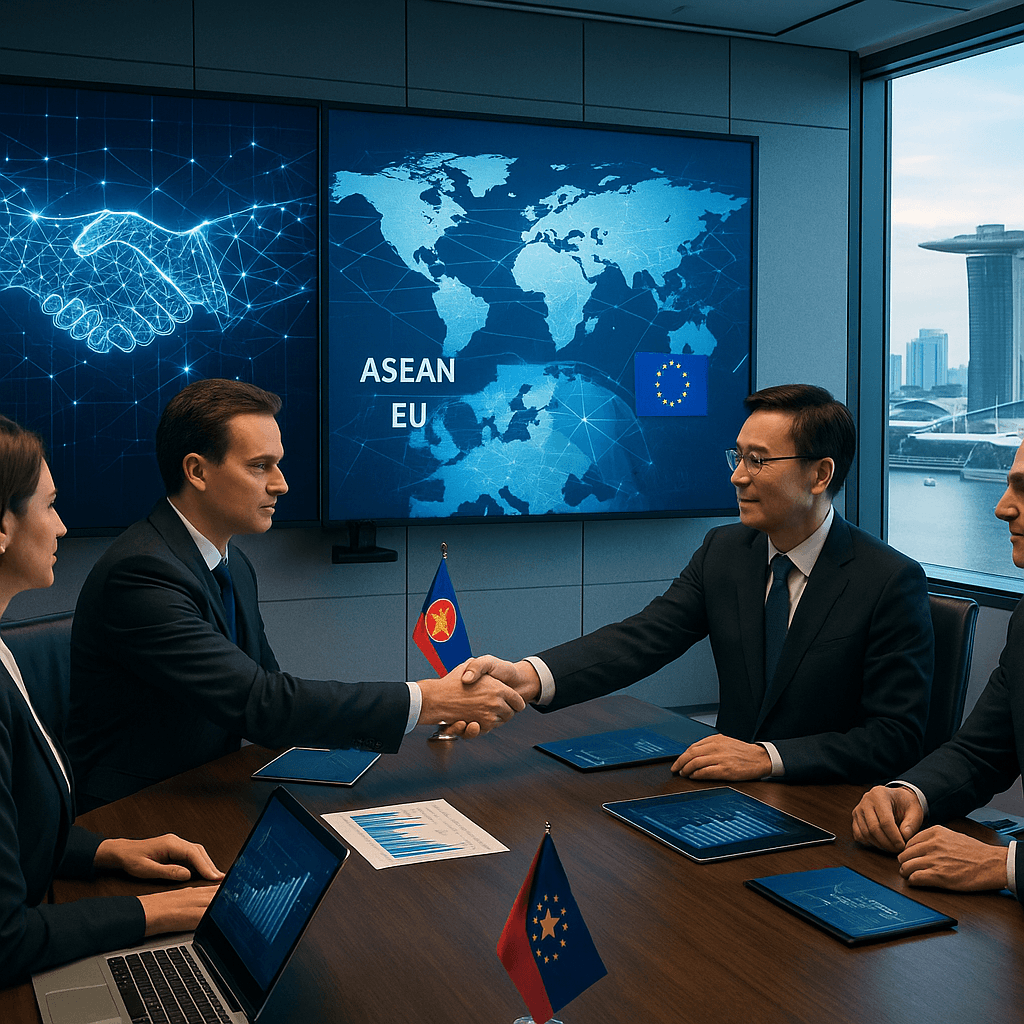Singapore's Deputy Prime Minister Gan Kim Yong is pushing for what could become a groundbreaking digital economy agreement between ASEAN and the European Union, calling it a potential "major breakthrough" at the Singapore Fintech Festival. With Southeast Asia's digital economy now valued at over $300 billion, the proposal comes as Singapore doubles down on multilateral trade despite rising global tensions.
Singapore just threw down the gauntlet for what could reshape global digital trade. Deputy Prime Minister Gan Kim Yong told a packed audience at the Singapore Fintech Festival that bringing the European Union and ASEAN together for a digital economy agreement would be a "major breakthrough" - and he's not talking small numbers here.
The timing couldn't be more telling. While trade wars simmer and protectionist walls go up globally, Singapore is betting big on the opposite direction. Gan, who doubles as the trade and industry minister, made his pitch during a fireside chat with DBS CEO Tan Su Shan, essentially proposing to merge two economic powerhouses representing nearly a billion consumers.
"EU will not be part of ASEAN. ASEAN will not be part of EU, but it doesn't stop [the] EU and ASEAN [to] come together to discuss areas that we can work together," Gan explained, according to CNBC's coverage of the event.
The stakes are massive. Southeast Asia's digital economy alone stands at over $300 billion in gross merchandise value for 2025, based on the 2025 Google e-Conomy SEA report. That's before you factor in the EU's digital market, which dwarfs most global economies.
But Gan isn't naive about the challenges. He acknowledged this "will take time" and suggested starting with basic digital collaboration rules before moving to bigger commitments. It's a pragmatic approach that mirrors how Singapore typically builds international partnerships - start small, prove value, then scale up.
The proposal comes as Singapore positions itself as the bridge between East and West in an increasingly fractured global economy. While other nations retreat into trade blocs, Singapore is actively courting multiple partnerships. Gan mentioned wanting ASEAN to work with the Gulf Cooperation Council and the 11-member CPTPP (Comprehensive and Progressive Agreement for Trans-Pacific Partnership) - the trade deal that emerged after Trump pulled the US out of TPP in his first term.
"So I think there are a lot of opportunities still, despite the headwinds and the uncertainties we are seeing," Gan said, directly acknowledging the challenging trade environment.
